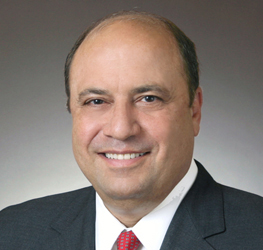State Budget: Revenue Estimating Conference Calculations Show Deeper Revenue Shortfalls
On March 13, 2009, the Consensus Revenue Estimating Conference issued a new official estimate of state revenues for the current 2008 – 2009 fiscal year and for the fiscal year that will begin on July 1, 2009. The Consensus Revenue Estimating Conference, which includes economists from the legislative and executive branches of Florida government, makes the official revenue and impact assessments that form the basis of the state budgeting process. Their new estimates replace revenue estimates made in November 2008.
Revenue estimates for the 2008 – 2009 fiscal year are $1.1 billion less than the November 2008 estimates, reflecting a 4.9 percent decline. For fiscal year 2009 – 2010, revenues are expected to be $2.3 billion less than the November 2008 estimate, reflecting a decline of 10.6 percent. The 2009 – 2010 fiscal year will be the fourth consecutive year of declining state revenues.
Legislators are currently preparing a budget for the 2009 – 2010 fiscal year on the basis of expenditures that could exceed the new revenue estimate by as much as $5.6 billion. The $5.6 billion projected shortfall assumes a $4 billion revenue reduction, continuation of current expenditures, and a new $1.6 billion in expenditures for critical needs such as prisons and Medicaid.
The Consensus Revenue Estimating Conference cited a number of factors that explain the downward revision of their revenue projections, including credit market problems that continue to constrain the housing market, consumer expenditures, and business investment; the global recession’s impact on tourism and exports; the deterioration of wealth resulting from job losses and declining property values; and the lack of population growth. These factors affect revenues from the sales tax, documentary stamp and intangibles taxes, and the corporate income tax.
Taxation: Legislature Continues Review of Sales-Tax Exemptions and Considers “User Fee” on Cigarettes
Legislative committees in both the Senate and the House are reviewing many of the exemptions from Florida’s sales tax. By some estimates, Florida law provides as much as $12 billion in sales-tax exemptions, including $10 billion of exemptions for groceries, medicine, housing, and other necessities.
One exemption that appears to be a leading candidate for repeal is the exemption for bottled water. Governor Charlie Crist has proposed a six-cent-per-gallon fee and the repeal of the bottled-water tax exemption, which could generate revenue of up to $42 million a year. A representative of Nestlé Waters North America, the company that markets the Zephyrhills and Deer Park brands of bottled water, told the House Finance & Tax Council that “the governor wants to tax my client out of business.” Nestlé Waters North America is responsible for approximately 25 percent of the water bottled from Florida source. The Finance & Tax Council also examined several other exemptions in detail, including the exemptions for Super Bowl tickets, stadium skybox tickets, ostrich feed, and magazine subscriptions.
Rep. Ellyn Bogdanoff (R-Fort Lauderdale), Chair of the House Finance & Tax Council, stated that the impact on both employment and revenues would be considered when evaluating a tax exemption. Some Democratic members of the council questioned the seriousness of the review of tax exemptions.
The Senate Finance and Tax Committee also is reviewing sales-tax exemptions. On March 12, 2009, the private, nonprofit Florida Tax Watch presented the committee with a list of sales-tax exemptions that could be eliminated and produce more than $500 million in revenue, although the organization stopped short of endorsing the new taxes. Under the Florida Tax Watch analysis, more than $335 million in revenue could be produced each year by eliminating the sales-tax exemptions for certain services, including dry cleaning, photo finishing, pet care, hair cutting and styling, gyms, pest control, lawn services, and sightseeing buses. In addition, $225 million could be generated by eliminating exemptions for charter fishing boats, bottled water, veterinary medicines, flags, and certain other items.
Sen. Alex Diaz de la Portilla (R-Miami), the Senate Majority Leader, stated that the Senate would consider revenue increases: “Everything will be discussed, including sales tax exemptions … . It is becoming increasingly obvious that we may not be able to get out of here without seriously looking at revenue generators.” Senate Ways and Means Committee Chair J.D. Alexander (R-Winter Haven) noted that while the Senate was not particularly sympathetic to revenue increases, “the mood may change dramatically” after senators consider the revised revenue estimates released on March 13, 2009.
Another tax under consideration would be an increase in the tax or “user fee” on cigarettes of up to $1 per pack. Florida currently has one of the lowest cigarette-tax rates in the nation. Bills to raise cigarette taxes or user fees appear to have bipartisan support in both chambers of the Legislature. A separate cigarette-tax issue involves a proposal for an additional tax on the cigarette manufacturers that did not participate in, or were dismissed from, the multi-billion dollar settlement of the state’s lawsuit against major tobacco companies. The companies that are currently paying a per-pack assessment as part of the settlement have stated that they would support a tax increase only if it also included an assessment on companies that did not participate in the settlement. The assessment on nonsettling companies would have a major impact on Dosal Tobacco Corporation, a Florida-based company that employs approximately 130 people full-time at its Opa Locka factory.
Seminole Indian Gaming Compact: Key Legislators Anticipate Major Changes to the Gaming Compact
The future of gaming at casinos operated by the Seminole Tribe of Florida was in doubt as committees in both chambers continued to review the agreement between the state and the tribe that authorized the tribe to operate blackjack and other games that are not allowed at other facilities in Florida. Rep. Bill Galvano (R-Bradenton), Chair of the House Select Committee on Seminole Indian Compact Review, stated on March 12, 2009 that his committee had an appetite to “bring the compact back into the parameters where it should have been, and that’s without the card games to begin with.” Rep. Galvano also indicated that it was possible that the legislative session would end without a resolution of the Seminole gaming issue, although he later clarified that “the intent is still to work it out.”
Sen. Dennis Jones (R-Seminole), Chair of the Senate Committee on Regulated Industries, commented that neither he nor Rep. Galvano was treating the end of the legislative session as a deadline, stating, “If we can’t do it right, I don’t think either one of us feels it’s something that we have to do.” The key issue for legislators is the impact of Seminole casinos on existing operations at — and revenues from — pari-mutuel facilities. Pari-mutuel operators have complained about competition from blackjack and other table games, which the Seminole casinos have an exclusive right to operate under the gaming compact. Supporters of the compact have testified that approximately 5,000 jobs are dependent on blackjack and other table games.
Growth Management: Bill Would Give Department of State Control Over Growth Management Issues
On March 11, 2009, the House Committee on Military & Local Affairs approved a proposed committee bill, PCB MLA 09-01, which would abolish the Department of Community Affairs and transfer most of its functions to the Florida Department of State.
The bill is supported by business and development interests, who testified that it would streamline land-use permitting processes, extend the life of building permits, and allow local governments to reduce impact fees. Representatives of environmental organizations oppose the merger. The merger also is opposed by Department of Community Affairs Secretary Tom Pelham, who commented that it would undermine Florida’s growth management structure without any improvement in efficiency. Gov. Crist also appears likely to oppose the bill. When asked whether he would support it, he said, “Probably not, but I haven’t seen the bill.”
Public Affairs News Alert is part of our ongoing commitment to providing up-to-the-minute information about pressing concerns or industry issues affecting our clients and our colleagues. If you have any questions about this alert or would like to discuss these topics further, please contact your Foley attorney or any of the following individuals:
|
Marnie George Michael P. Harrell Robert H. Hosay |
Jonathan P. Kilman Thomas J. Maida Leonard E. Schulte |

